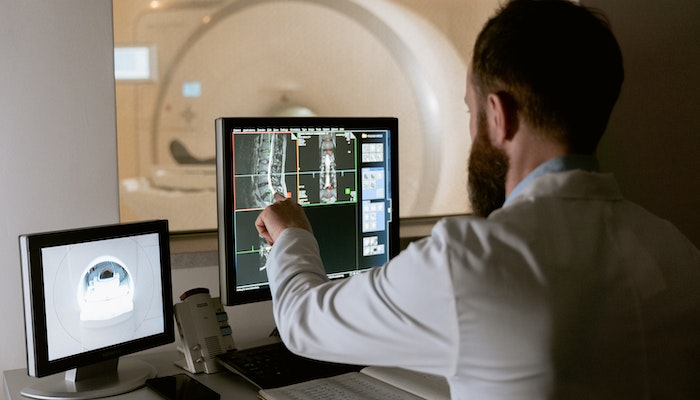
In the realm of healthcare, one aspect that should never be overlooked is patient privacy. The confidentiality of your medical information is not just a legal requirement; it’s a fundamental right. Protecting your healthcare data ensures that your personal and sensitive information remains secure and inaccessible to unauthorized individuals. In this article, we will delve into the importance of guarding your medical privacy and provide you with essential guidance on how to protect your healthcare information effectively.
The Significance of Patient Privacy
Patient privacy is not merely a bureaucratic requirement; it’s a cornerstone of ethical medical practice. It encompasses the confidentiality of your medical records, test results, treatment plans, and any other information related to your health. Here’s why patient privacy matters:
Trust and Confidence: Knowing that your medical information is kept confidential fosters trust and confidence in your healthcare providers. It encourages open communication and honest discussions about your health.
Personal Dignity: Respecting your medical privacy upholds your personal dignity. It ensures that your health information is not exploited, discriminated against, or used for unauthorized purposes.
Legal Rights: Patients have legal rights to privacy under laws such as the Health Insurance Portability and Accountability Act (HIPAA) in the United States. These laws establish strict regulations for the protection of patient information.
Protecting Your Medical Privacy as a Patient
Now that you understand the importance of patient privacy let’s explore practical steps you can take to safeguard your healthcare information:
Ask Questions: Don’t hesitate to ask your healthcare provider about how your medical information is stored and protected. Inquire about their privacy policies and practices.
Review Consent Forms: Whenever you visit a healthcare facility, you may be asked to sign consent forms. Take the time to read these forms carefully and ask for clarification if needed. Ensure you understand how your information will be used and shared.
Secure Personal Devices: If you communicate with healthcare providers or access medical records online, use secure, password-protected devices. Enable two-factor authentication where possible to add an extra layer of security.
Limit Sharing: Be selective about sharing your medical information. Only provide relevant details to healthcare professionals involved in your treatment. Avoid sharing sensitive information on social media or unsecured platforms.
Secure Medical Records: Keep physical copies of medical records, test results, and prescription information in a safe and confidential location. If you have electronic records, use strong and unique passwords to protect them.
Report Privacy Violations: If you suspect a privacy breach or unauthorized access to your medical information, report it immediately to your healthcare provider and the appropriate regulatory authorities.
Understand Your Rights: Familiarize yourself with your rights as a patient under privacy laws like HIPAA. You have the right to request access to your medical records and ask for corrections if needed.
Be Vocal: Advocate for your privacy rights during healthcare interactions. If you’re uncomfortable with information-sharing practices, express your concerns and preferences to your healthcare provider.
Safeguarding Patient Privacy: A Healthcare Professional’s Role
Healthcare professionals shoulder a significant responsibility when it comes to safeguarding patient privacy. Adherence to privacy regulations is paramount. This involves not only understanding but also rigorously implementing legal frameworks such as the Health Insurance Portability and Accountability Act (HIPAA) and other applicable regulations. Healthcare providers must create a culture of compliance within their institutions, ensuring that every team member understands and respects the confidentiality of patient data.
Education and training are essential components of privacy protection. Healthcare professionals should receive ongoing training on privacy policies and procedures, staying updated on evolving regulations, improvements in healthcare tech, and cybersecurity threats. They must be well-versed in best practices for maintaining patient confidentiality, including secure record-keeping and communication methods. Access control to electronic medical records is critical; robust systems should be in place to ensure that only authorized personnel can access sensitive patient data.
Additionally, healthcare providers must prioritize secure communication methods, particularly when sharing patient information electronically. This includes the use of encrypted channels to safeguard sensitive data during transmission. Patient consent is another key consideration. Healthcare professionals should seek informed consent from patients before sharing their medical information with other healthcare professionals or institutions involved in their care.
Furthermore, patient education is a valuable tool in the protection of privacy. Healthcare professionals can play a pivotal role in educating patients about their privacy rights, the steps being taken to protect their information, and how they can actively participate in safeguarding their own privacy. By creating a partnership between patients and healthcare providers in the pursuit of privacy, the healthcare industry can ensure that the ethical and legal obligations of patient confidentiality are upheld while delivering the highest quality of care.
Conclusion
Guarding your medical privacy is not just a responsibility for healthcare providers; it’s a shared responsibility that extends to patients as well. By actively participating in the protection of your healthcare information, you not only ensure your personal dignity and rights are respected but also contribute to a culture of trust and transparency in healthcare. Remember, your healthcare data is a valuable asset, and safeguarding it is essential for your well-being and peace of mind.

Lifebing is driven by an unrelenting passion for promoting health and well-being, our team is wholly committed to curating exceptional content and immersive experiences.
